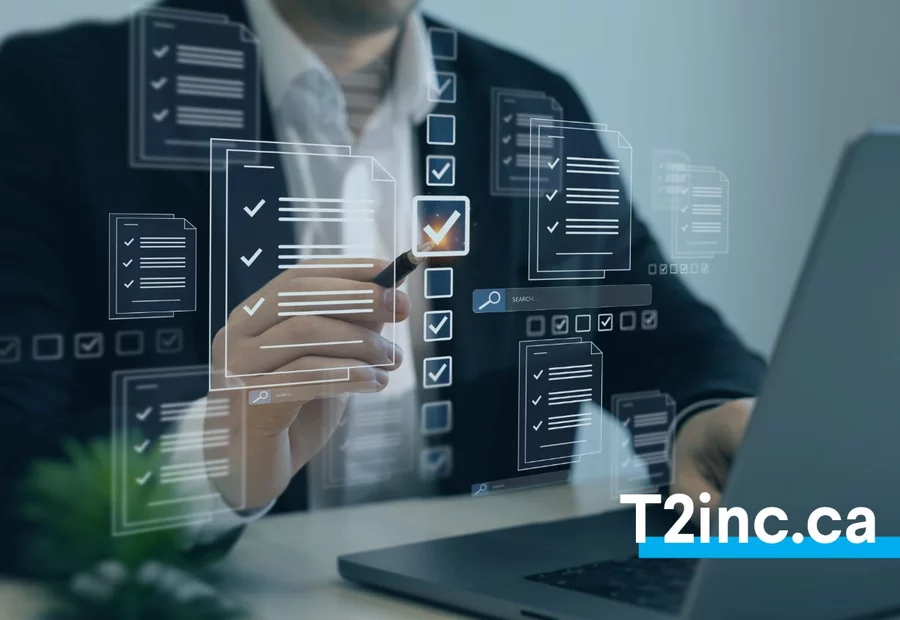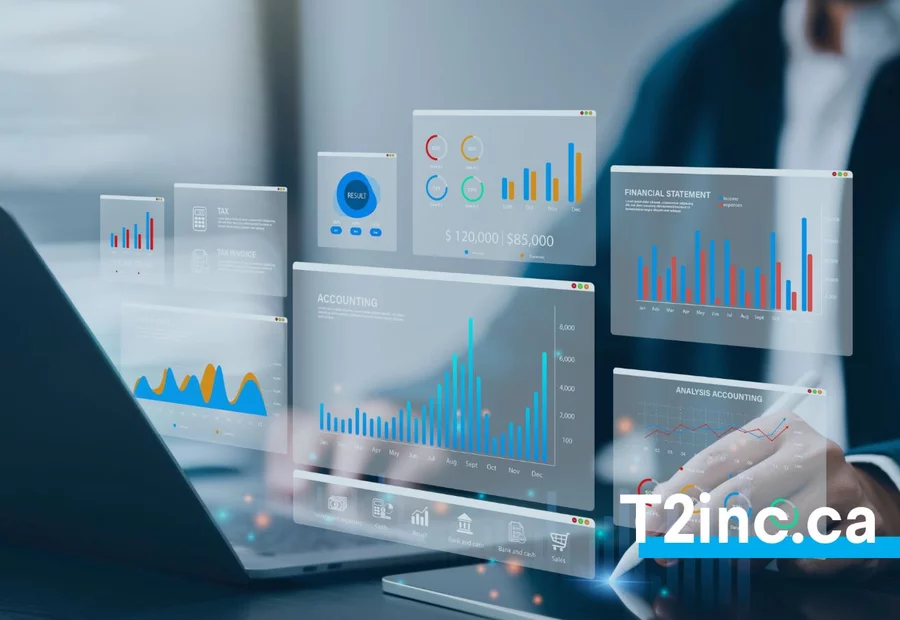Understanding Accounting Records

Keeping accounting records is a legal obligation for every business, but it is also a key tool for understanding and managing finances. When properly structured, accounting records not only make it possible to produce reliable financial statements, but also to support the amounts reported if requested by tax authorities. Conversely, incomplete or poorly organized records can quickly become a serious issue.
This article helps you understand what an accounting record is and its role for an incorporated business.
Key Takeaways
- Accounting records are a legal requirement in Canada, regardless of the size or level of activity of the business.
- Accounting records must be retained for at least six years after the end of the last applicable tax year. In certain specific situations, a longer retention period may be required.
- For an incorporated business, keeping rigorous records is essential: they support effective financial management and significantly reduce the risk of tax reassessments in the event of an audit.
What are Accounting Records? Definition
Accounting records are official documents in which a company's accounting transactions are recorded, either chronologically or systematically.
In practice, a business relies on several distinct accounting records (journals, the general ledger, customer and supplier records, etc.), along with supporting documents (invoices, receipts, contracts, bank statements, correspondence). Taken together, these documents form the accounting documentation required to track transactions and comply with tax obligations. They also greatly facilitate the preparation of corporate tax returns.
Note: In everyday language, the term "record" is sometimes used to refer to the entire set of accounting documents. In a tax context, however, each document is considered a separate record, and it is the set of accounting records as a whole that is used to assess a company's accounting position.
Who Must Keep Accounting Records?
Any individual or entity with tax obligations must keep adequate records. This requirement applies regardless of the size of the organization, its revenue, or whether it is currently active.
Entities required to keep records include, among others:
- incorporated businesses, including inactive corporations and holding companies;
- self-employed individuals and sole proprietors;
- partnerships;
- non-profit organizations;
- registered charities;
- trusts;
- any person or organization required to file a tax return or to collect and remit taxes (GST/HST, QST), payroll deductions, or other amounts payable.
It is important to understand that the absence of activity or revenue does not remove this obligation. An inactive corporation must still be able to demonstrate its financial position and support its tax filings through complete accounting records.
Your Records, Your Responsibility
Even when record-keeping is delegated to an accountant or a software solution, legal responsibility always remains with the taxpayer or organization. In the event of an audit, the records held and retained by the business are the ones that will be relied upon by the Canada Revenue Agency (CRA) and Revenu Québec.
Types of Accounting Records to Keep
There is no closed list of accounting records that must be kept. However, the CRA requires businesses to retain all records and documents necessary to support and verify the amounts reported (income, expenses, taxes, and duties).
In practice, this means maintaining several distinct accounting records, supported by appropriate documentation.
Accounting Journals
Accounting journals form the foundation of accounting records. They record a company's financial transactions chronologically and provide a clear picture of its activities.
They generally include:
- the sales journal, which records all revenue generated from customers;
- the expense journal, which groups purchases and operating expenses;
- cash receipts and disbursements journals, which track actual cash inflows and outflows from bank accounts;
- the payroll journal, when employees are involved, to record wages paid and withholdings.
These journals make it possible to track transactions over time and maintain a clear, verifiable history of business activities, particularly for posting to the general ledger.
The General Ledger
The general ledger is a central accounting record. It brings together all journal entries, organized by account (revenue, expenses, assets, liabilities), based on the information recorded in the journals.
It provides an overall view of the company's financial position and makes it possible to explain the origin of each account balance. Financial statements are prepared on this basis.
Accounts Receivable and Accounts Payable
Accounts receivable and accounts payable records track amounts that have not yet been collected or paid.
They indicate, in particular:
- which customers still owe payment;
- which suppliers need to be paid.
These records are essential for cash flow management and monitoring outstanding invoices. When a receivable becomes uncollectible, they also allow income to be adjusted so that the business is not taxed on amounts that were never received.
Supporting Documents
An accounting record has no tax value unless it is supported by source documents. Each entry must be traceable to an underlying document.
These may include:
- invoices and receipts;
- contracts;
- bank statements;
- account statements;
- tax returns;
- correspondence (emails, letters);
- working papers used to calculate tax amounts.
Without these documents, accounting records may be considered incomplete for tax purposes, even if the figures appear accurate.
Other Examples of Accounting Records
Depending on the nature of the business, accounting records may also include:
- sales tax tracking (GST/HST and QST);
- a fixed assets register and depreciation schedules;
- bank reconciliations;
- inventory records (if applicable);
- payroll and source deduction records (if applicable).
These elements ensure consistency between day-to-day operations, accounting entries, financial statements, and tax filings.
Paper or Electronic Records: What Does the CRA Say?
Accounting records may be kept on paper or in electronic format. According to CRA Information Circular IC78-10R5, the tax authority does not impose a specific format, but requires that records allow businesses to determine taxes payable, taxes to be collected or remitted, and to support reported amounts.
Paper records, including original documents, are acceptable as long as they are kept for the required period and made available to the CRA in the event of an audit. Electronic records are also permitted, provided they are kept in an intelligible electronic format.
In practical terms, a business must be able to provide the CRA with an accessible and usable copy of its records, compatible with CRA systems, and maintain appropriate backup copies.
Information Circular IC05-1 on electronic record keeping further specifies that electronic copies must be retained even when paper versions exist.
As a general rule, records must be kept in Canada. Records hosted outside Canada, even if accessible online, are not considered to be kept in Canada for tax purposes. Finally, paper documents may only be replaced by electronic images or microfilm if the digitization process meets specific standards; otherwise, the original documents must be retained.
Which Tools Should Be Used to Maintain Accounting Records?
While records can be kept on paper, many businesses now prefer digital tools to improve the traceability of accounting information. Two main categories of tools are commonly used: accounting software and spreadsheets such as Excel.
- Accounting software centralizes financial operations in a structured system. It simplifies the tracking of sales, expenses, taxes, and balances, and provides stronger traceability as transaction volumes increase or operations become more complex.
- Spreadsheets, such as Excel files, may be suitable for businesses with simple and limited activities. They offer flexibility but rely heavily on user discipline and tend to reach their limits as the business grows.
Other tools, such as invoicing, payroll, or receipt management software, can support bookkeeping activities, but they do not replace the accounting records themselves. Regardless of the tools used, the quality and traceability of the information remain essential.
Why Are Accurate Accounting Records Important To A Business?
For an incorporated business, accounting records are both a tax obligation and a central management tool. Well-structured records provide a reliable view of the company's financial position, support cash flow monitoring, and reduce the risk of errors or tax reassessments.
Whether records are kept internally or entrusted to professionals, a rigorous organizational approach makes all the difference. T2inc.ca offers a bookkeeping service, delivered through trusted accounting partners, to help incorporated businesses maintain clear, compliant accounting records. Contact our team to learn more.
Contact our experts
Have a question? Need help? Fill out our online form to get help from our experts.
Contact usNeed more help?
Contact us by filling out our form
Are you interested in our services, but would like more information before taking the plunge? Contact us today and one of our tax accountants will be in touch to help you.
At T2inc.ca, we're committed to helping business owners manage their company's tax affairs so they can grow their business.




